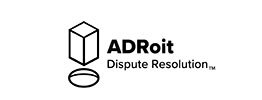Big Discovery Changes Around the Corner – Proposed Amendments to the Michigan General Court Rules
At the urging of the Michigan Supreme Court, the State Bar of Michigan established a task force to evaluate and propose any recommended changes in discovery practices in the Michigan trial courts. In 2016, as part of the Bar’s 21st Century Task Force final report, the Board included the following amongst its goals:
- Modify court rules to reduce the expense and burden of civil discovery.
- Research whether pretrial discovery and practice should be tailored on a case-by-case basis, taking into consideration the parties’ financial resources and other relevant factors.
- Modify court rules and administrative procedure to better utilize mediation and alternative dispute resolution (ADR).
- Promote business process analysis, problem-solving court principles, and best practices to courts, law firms, legal aid programs, and other justice system entities.
- Promote the use of properly trained mediators or special masters to expedite the discovery process.
On September 25, 2017, the State Bar of Michigan published the Civil Discovery Court Rule Review Special Committee Report and Draft Proposal inviting comments and suggestions on the proposed changes to the Michigan General Court Rules. Please take the opportunity to provide your comments to these proposed changes that include:
- Underscoring the authority of the trial court to “control the scope, order and amount of discovery…” Rule 2.301.
- Providing for the filing of initial disclosures by the plaintiff within 14 days of the filing of an answer and requiring the defendant to file its initial disclosures within 14 days after the plaintiff’s disclosures. Rule 2.302 (A).
- The proposed Rule 2.302 (B)(1) recommends principles of “proportionate” discovery, including discovery of electronically stored information Rule 2.302 (B)(5) and (6).
- Unless otherwise modified by the trial court and/or the stipulation of the parties, limiting the total number of depositions to ten and limiting each deposition to no more than one day of seven hours. Rule 2.306.
- Rule 2.309 would provide that “[e]ach separately represented party may serve no more than twenty interrogatories upon each separately represented party. An interrogatory containing discrete subparts counts as a single interrogatory.”
- Rule 2.411 does not authorize the use of discovery “masters” by the trial courts. However, the Rule sets forth a process for the use of mediators to resolve discovery disputes and the appointment of an expert under Rule 706 “involving complex issues of electronically stored information…” This court appointed expert may also serve as a discovery mediator to resolve discovery issues concerning ESI.
There are a number of other important suggested recommendations in the Draft Proposal that all litigators should read and comment upon as appropriate.
Once comments are received, it is anticipated the Task Force will finalize its proposal for potential adoption by the Representative Assembly of the State Bar at its Spring Meeting. Any approved Representative Assembly proposals would then be forwarded to the Michigan Supreme Court for its consideration.
